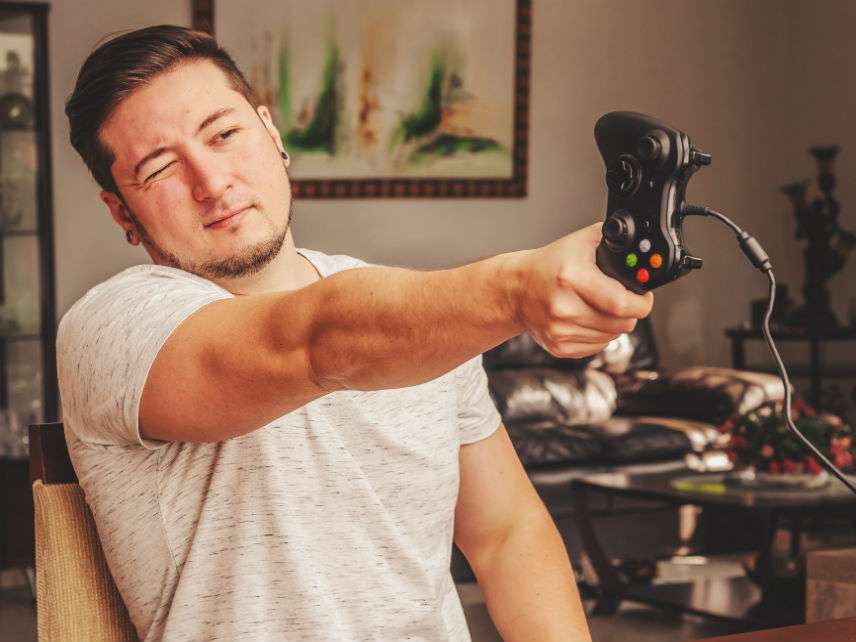Violent Video Games Don't Make Players More Violent IRL
New study trashes crappy consensus correlating gaming violence and aggression in real life

Video game violence does not lead to real life violence, finds a terrific new study in the journal Royal Society Open Science. The title lays it out plainly: "Violent video game engagement is not associated with adolescents' aggressive behaviour." Oxford University psychologist Andrew Przybylski and Cardiff University psychologist Netta Weinstein set out to test the findings of researchers who claim violent video games induce aggressive tendencies in players. Their "aim was to rigorously test the hypothesis that time spent playing violent video games is positively associated with adolescents' everyday behavioural aggression."
Their top-line finding is that their study "did not support the position that violent gaming relates to aggressive behaviour."
This contradicts the consensus hammered out by an American Psychological Association task force on violent video games in 2017. That task force "found that violent video game exposure was associated with: an increased composite aggression score; increased aggressive behavior; increased aggressive cognitions; increased aggressive affect, increased desensitization, and decreased empathy; and increased physiological arousal." The task force also "concluded that violent video game use is a risk factor for adverse outcomes, but found insufficient studies to examine any potential link between violent video game use and delinquency or criminal behavior."
Przybylski and Weinstein set out to devise a particularly rigorous study by pre-registering their empirical approach so that they could avoid the persistent problems in psychological research of "p-hacking"; that is, running multiple tests on a dataset until the researcher finds a result that achieves statistical significance, and then "HARKing," an acronym that stands for "hypothesizing after the results are known." In Przybylski and Weinstein's review of prior literature, the two researchers strongly argue that earlier research is beset with such problems.
In this study, the pair recruited 1,004 British video game players ages 14 and 15, of which 540 participants identified as male, 461 as female, and 3 as another gender orientation. For each player, they also recruited their carers (mostly parents). They determined which games the kids played and coded the level of violence in each game using E.U. and U.S. industry ratings. They measured youth aggression and prosocial behaviour with carer responses on the Strengths and Difficulties questionnaire that has been extensively used to assess interpersonal aggression across a wide range of cultures. Then they ran their various regressions.
"We found adolescents were not more or less likely to engage in aggressive or prosocial behaviours as a function of the amount of time they devoted to playing violent games," they report.
Przybylski and Weinstein add, "This pattern of findings further suggests that links reported in the literature might be influenced by publication bias, selective reporting, or an artefact of unobserved or hidden moderators." In other words, the 2017 task force's conclusion that video game violence makes players aggressive is highly suspect.


Show Comments (20)